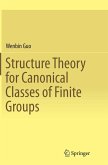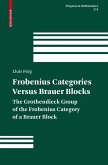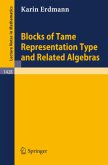Providing a nearly complete selection of up-to-date methods and results on block invariants with respect to their defect groups, this book covers the classical theory pioneered by Brauer, the modern theory of fusion systems introduced by Puig, the geometry of numbers developed by Minkowski, the classification of finite simple groups, and various computer assisted methods. In a powerful combination, these tools are applied to solve many special cases of famous open conjectures in the representation theory of finite groups. Most of the material is drawn from peer-reviewed journal articles, but there are also new previously unpublished results. In order to make the text self-contained, detailed proofs are given whenever possible. Several tables add to the text's usefulness as a reference. The book is aimed at experts in group theory or representation theory who may wish to make use of the presented ideas in their research.
"It gives an excellent survey of the current state of knowledge with regards to the precise determination of the numerical invariants of blocks with a given defect group ... . The book is a treasure trove of theorems and useful tables, and uses a wide variety of techniques, including the classification of finite simple groups and the GAP computer algebra package. It is the progress made without use of the classification, however, which is particularly impressive." (Charles W. Eaton, Mathematical Reviews, February, 2016)








